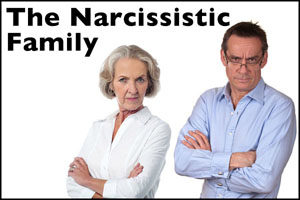 By Joanie Bentz, B.S., M.Ed., LBS
By Joanie Bentz, B.S., M.Ed., LBS
This is the last article in a series about my work with a client, “Mary,” in which I used the empty chair technique. This therapy technique helped her explore generational abuse and express long-suppressed feelings to her father, who was deceased. You can read the previous articles here:
Empty chair technique to resolve issues with deceased father
Coming to terms with an abusive mother and an indifferent father
Her father felt sorry for her sociopathic ex
During Mary’s processing of her emotions through this empty chair technique, she realized that she had nothing to do with the origination of her family’s chaotic problems. Mary learned that while she was around her parents and siblings, she kept her true self from emerging, and just played a role to gain their approval. She never had a sense of connection with them, and always felt as if she were an outsider.
In this last article, we are introduced to Mary’s brother, who was one of the oldest of the eight children in the family, and the anointed golden child for many years.
Mary’s brother struggles with addiction
Mary looked up to him when she was younger. She did not spend a lot of time with him, but her mother told her that he was not controllable as a child. This led to parental permissiveness in regard to disciplining him consistently.
When Mary’s brother hit rock bottom with addiction, the siblings began to initiate the “discard” phase since he was demonstrating to outsiders that he could not keep up the façade of normalcy that the family heavily relied on through the years. It seemed to Mary that her father never admitted his son was an addict and was suffering from intense inner turmoil. He died of a drug overdose, which she wanted to address with her father.
Mary: I would like to talk about my brother who is not with us anymore.
Dad: Your brother was gifted. So talented in many ways. We allowed him to take his abilities to the next level.
Mary: When he was in a coma, I told you that people just don’t become drug addicts because they like doing drugs and then just become addicted.
Dad: I disagreed with you. I said lots of people abuse substances because they initially liked doing it and then just became addicted.
Mary: And I disagreed with you! I stated that the reason people become addicted to drugs—and abuse drugs—is because of something missing in their lives. This is how they cope with unwanted emotions and memories. They are filling a hole where love should be.
Reasons for addiction
Joanie: Some reasons people abuse drugs are early childhood trauma, history of abuse, stressful life experiences, and lack of support in family.
Dad: Well, I do remember telling you that, as an example, I knew alcoholics who became that way because they really enjoyed drinking.
Mary: What? The other siblings used his worst moments against him. His demise and bad choices were a source of gossip, accusations and condemnation. No one really cared that he was suffering. All I knew was that he was an unsafe person to be around and until he admitted he had a problem, he was going to continue to be unsafe. It was best that I kept minimal contact, especially for my own kids.
Dad in denial
Mary: Dad, the issue I had with this conversation was that you were in denial that your son had an ongoing drug problem his entire life. I supported you sending him to rehab, but knew it was too late in the game. He should have gone to rehab decades earlier—not when he was divorced with children.
Joanie: Do you know if he received any kind of intervention as a child and a teenager?
Mary: If he did, I was never told about it. My parents thought he walked on water. They had plans for me too. If any one of us displayed a talent, it was exploited and magnified so that no one could see the person — only the talent garnered attention. It was like being objectified. I resisted this treatment in many ways. In retrospect, coping was horribly difficult. I even dated an addict as a teenager, with disastrous results. He felt like “home” too.
Mary (to Dad): The root causes of my brother’s addiction were never discussed or explored. He also had behavioral problems that should have been addressed when he was younger. Granted—your generation may have not known how to deal with these issues — but his outbursts and oppositional behavior should have given you some kind of clue. He had been in trouble with the law, but you kept this information from me. I only discovered it years later.
Dad: It was better not to talk about it. What good would it have done you? You were busy raising your own children. Plus, he was married with kids. He was not my responsibility anymore.
Mary: It would have been good to know when he was around my children! It was neglectful not to inform me at least for their sake. He ended up your responsibility anyway because no one in our family would recognize and discuss that he had deep-seated psychological issues that culminated in his death.
Dad: He was cursing and yelling at me during his last years alive, usually under the influence of drugs, saying I was never there for him. I did not understand.
Mary: I was never able to discover the meaning behind this statement. I laughed it off. He stated in an email to me that you never emotionally supported him. He sounded completely crazy. Maybe he was high on drugs. I don’t know. Lastly, he cryptically relayed to me personally that our mother knew everything about him, and that he had a close relationship with her. That was news to me. Sadly, she died many years ago, and is buried with the truth. I wish I listened to him.
Mary’s conclusion about her family’s dynamics
When Mary completed the empty chair technique, she was emotionally drained but relieved to have the opportunity to process everything that occurred in her childhood up until her father’s recent death. Mary learned through this unique talk therapy exercise that she could identify her internal conflicts about her family functioning and also draw out memories that had been long-buried and too difficult to examine previously.
The discovery aspect of this exercise assisted her in understanding that she was often ignored and excluded from communicating with, and interacting with, her parents and siblings because of who she was, not because of her birth order. She was the official scapegoat. She never realized that this assigned role was a form of abuse.
Mary now knows what abuse looks like, and can name it. Being mistreated as a child set the stage for predatory narcissists to infiltrate her life later on — a recipe for generational abuse. But all narcissists must have a scapegoat, and now, she does not take it personally.
Mary’s guilt prevented her healing
Previously, Mary perceived that either she stayed in the box her family put her in, or she was irrelevant. Her parents seemed to value what she could bring to the table (looks, talent, honor) more than who she was as a person. The family wanted to function unhindered by any flaws that might be detected by outsiders, hence their cult-like loyalty to family secrets. Her brother seemed to be a product of lack of discipline in early childhood and infantilization as he matured. While he was alive, she would have never thought her brother, the first anointed golden child, fought this role his whole life through drug abuse.
Mary, for years, was weighed down by the immense guilt of feeling uncomfortable around her family, feeling disturbingly unsafe, while at the same time desiring a relationship with them, especially her father. Mary learned that guilt is something we’re taught to feel by those who want something from us. Mary tried very hard to gain her family’s approval, but now understands that it was not attainable and pursuing it was a complete waste of time. Her family’s seemingly unchallenged authority and highly critical attitude toward others did not determine Mary’s reality, as she once thought. She now knows her feelings and opinions are not offensive, as family members said, nor highly illogical.
Mary’s legacy: the end of generational abuse
Today, Mary rests easy knowing that she is not a bad person for choosing to take care of herself and her needs, and caring for her own husband and children. People who appreciate and love her for everything she is — and who she is not. Mary’s needs are just as important as anyone else’s — and she now stands against any kind of manipulation or coercion that threatens her autonomy and authentic self.
Learn more: Overcoming shame — how to feel worthy of love and respect
Mary has learned that you cannot control someone’s negative behavior, but you can control how long you participate in it. Mary now lives free of the burden of toxic guilt and shame that permeated her entire being since childhood. She is free from the prison of feeling responsible for everyone’s happiness. The legacy that Mary is leaving behind is that the generational abuse and the devastation is finished. It ended with her.




































 How sociopaths become expert manipulators
How sociopaths become expert manipulators
Donna Andersen
Joanie – thank you so much for sharing your experience of working with your client, Mary. I think the “empty chair” technique enabled Mary to process her experience and gain profound insights. A great step towards recovery!
Joanie Bentz, B.S., M.ED, LBS, CCBP
Thanks Donna! As a clinician, I am always learning through my clients’ experiences!